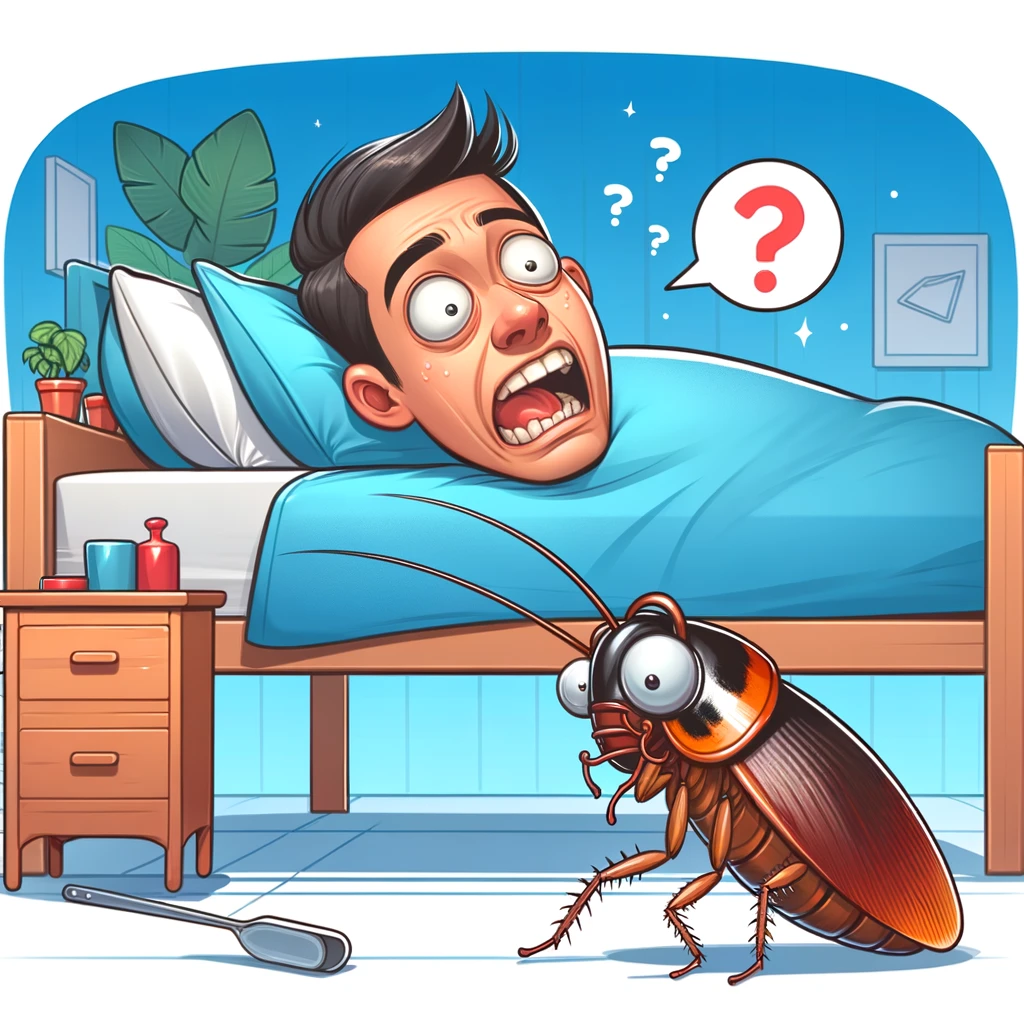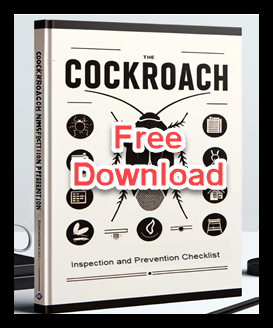Can Cockroaches Bite Your Eyelid?
 Cockroaches are notorious for their ability to invade our homes and cause distress. Among the various concerns people have about these pests, one particularly unsettling question is whether cockroaches can bite your eyelid. In this article, we’ll explore the truth behind this concern, the behavior of cockroaches, and how to protect yourself from these unwelcome intruders.
Cockroaches are notorious for their ability to invade our homes and cause distress. Among the various concerns people have about these pests, one particularly unsettling question is whether cockroaches can bite your eyelid. In this article, we’ll explore the truth behind this concern, the behavior of cockroaches, and how to protect yourself from these unwelcome intruders.
Do Cockroaches Bite?
General Behavior
Cockroaches are primarily scavengers, feeding on a wide variety of organic matter. While they are equipped with mouthparts capable of biting, they typically prefer to feed on food scraps, decaying matter, and other readily available sources of nutrition.
Biting Incidents
Although cockroach bites on humans are rare, they are not entirely unheard of. In extreme cases of severe infestations and food scarcity, cockroaches have been known to bite humans. These bites usually occur on exposed areas of the body, such as hands, feet, and fingers. But what about the eyelids?
Can Cockroaches Bite Your Eyelid?
Possible but Unlikely
The possibility of a cockroach biting your eyelid exists but is highly unlikely. Cockroaches are more likely to explore your face while you sleep due to the moisture and food particles that might be present. However, actual bites on the eyelid are extremely rare and typically occur under very unusual circumstances, such as:
- Severe Infestations: When cockroach populations are extremely high and food is scarce, they might resort to unusual food sources.
- Extended Periods of Immobility: If a person is immobile for long periods, such as in deep sleep, cockroaches might explore and occasionally bite.
What Happens if a Cockroach Bites Your Eyelid?
Symptoms
If a cockroach were to bite your eyelid, you might experience:
- Redness and Swelling: The bite area may become red and swollen due to the irritation and potential allergic reaction.
- Itching and Pain: The bite may be itchy and slightly painful.
- Risk of Infection: As with any insect bite, there is a risk of secondary infection if the bite area is scratched excessively.
First Aid
If you suspect a cockroach bite on your eyelid:
- Clean the Area: Gently wash the bite area with soap and water to reduce the risk of infection.
- Apply a Cold Compress: Use a cold compress to reduce swelling and relieve pain.
- Use Over-the-Counter Treatments: Apply an anti-itch cream or take an antihistamine to alleviate itching and discomfort.
- Seek Medical Attention: If the bite shows signs of infection or if you experience a severe allergic reaction, consult a healthcare professional.
Preventing Cockroach Bites
Maintain Cleanliness
- Keep Your Home Clean: Regularly clean your home, particularly kitchens and bathrooms, to eliminate food sources and hiding spots.
- Store Food Properly: Keep food in sealed containers and dispose of garbage regularly.
Reduce Moisture
- Fix Leaks: Repair any leaky faucets and pipes to reduce moisture levels.
- Use Dehumidifiers: In damp areas, use dehumidifiers to lower humidity levels.
Seal Entry Points
- Close Off Cracks and Gaps: Use caulk and weather stripping to seal cracks and gaps where cockroaches might enter.
- Install Screens: Ensure that windows and vents have tight-fitting screens to keep cockroaches out.
Professional Pest Control
For severe infestations, consider hiring a professional pest control service. Professionals can provide comprehensive inspections and targeted treatments to effectively manage and eliminate cockroach populations.
While the idea of a cockroach biting your eyelid is certainly unsettling, such incidents are extremely rare. Cockroaches are more likely to scavenge for food in your home than to bite humans. By maintaining cleanliness, reducing moisture, and sealing entry points, you can protect yourself and your home from these pests. If you do experience a cockroach bite, follow proper first aid steps and seek medical attention if necessary.
Stay vigilant in your efforts to keep cockroaches out of your home. Regular cleaning, moisture control, and sealing entry points are key to preventing infestations. If you need help, don’t hesitate to contact a professional pest control service for expert assistance.
- The Life Span of a Cockroach
- Do Cockroaches Eat Clothes?
- Do Cockroaches Have Teeth?
- Shrimps and Cockroaches
- Will Sleeping with the Light On Keep Cockroaches Away?
- How to get roaches out of your car overnight
- Do Cockroaches Feel Pain?
- How Many Legs Do Cockroaches Have?
- Comparing Cockroach Eggs Size for Different Types of Cockroaches
- Identifying a Cockroach Bite on the Lips or Face
- Black Water Bug Identification and Control
- Why Do Water Bugs Come Out At Night?
- What Does Roach Rash Look Like?
- Can Cockroaches Bite Your Eyelid?
- Can Cockroaches Live in Your Balls?
- How did cockroaches get their name?
- Why Do Cockroaches Shed Their Skin?
- What Smell do Palmetto Bugs Hate?
- Baby Palmetto Bug: Identification and Control
- Cockroach Eggs vs Poop: How to Tell the Difference
- How to Get Rid of Water Bugs
- How Long Can a Cockroach Live Without Air?
- The Lifecycle of the German Cockroach: From Egg to Adult
- Do Mice Eat Roaches
- Wood Roach vs. Cockroach

